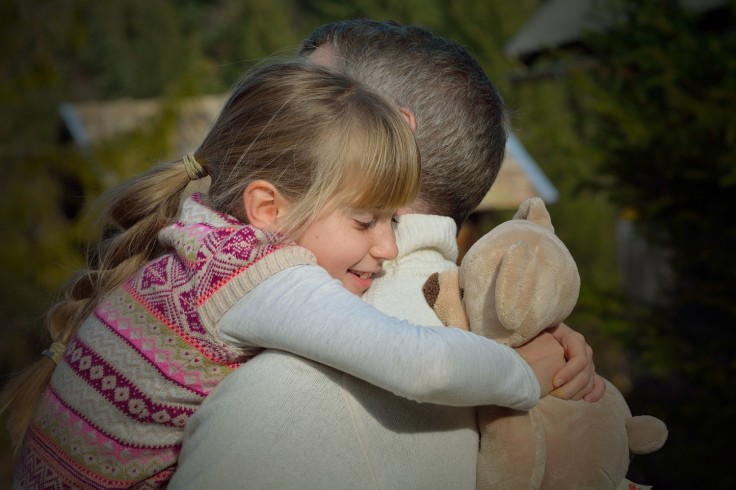
Oxytocin or what scientists call the "cuddle hormone," is a chemical in our bodies that rises when an individual hug, touch, or sit close to someone else. This is associated with happiness and less stress which causes a reduction in blood pressure as well as the stress hormone norepinephrine. The release of hormones could directly relieve pain as it reduces sensitivity to pain indirectly by decreasing feelings of anxiety and fear.
Dr. Emily Mudd of Cleveland Clinic Children's noted that when kids are being hugged, it helps them to regulate emotions and helps their brains develop. She noted that a good hug is an important thing and what everyone needs every now and then. Hugs also promote the development of young one's physiological systems that regulate emotions and stress responses.
Dr. Mudd added that when kids receive a hug, their brains release oxytocin which serves as the "feel good" brain chemical. Kids can manage stress by calming the release of cortisol, a stress hormone. She suggests hugging young ones when they're overly stressed to help them calm down.
When they receive warmth and affection from their parents at an early age, they are more likely to have greater resiliency and establish a positive parent-child relationship into adulthood.
How many hugs should kids need?
The late Virginia Satir, a therapist and author known for her work with family-centered therapy and self-esteem, stated that individuals need to have four hugs daily for survival and eight hugs daily for maintenance. Twelve hugs a day are essential for growth. The more hugs an individual receive, the healthier and more well-connected people will be.
While teens normally pull back from their parents' physical touch, specifically a hug, and attempt to become more independent as they age, they are still humans and crave physical contact. Kids who do not have affectionate parents tend to have lower self-esteem and feel more aggressive and anti-social.
If kids don't receive enough hugs, they become stressed and depressed as it causes their heart rate, blood pressure, breathing, and muscle tension to go up, which is considered one of the bad effects on the immune and digestive systems.
According to Slate, some kids might treat hugs as their primary way of expressing affection; thus, they ask for many hugs from their parents. Some crave closeness from their parents, especially when they feel anxious or seek comfort.
Hugging appears to be therapeutic
Data published on Mindbodygreen determined that hugging is therapeutic as it is a powerful way of healing. It also shows that hugging along with laughter is ultimately effective at healing sickness, loneliness, and stress. A hug where the hearts are pressed together can benefit one another and establish trust and a sense of safety.
While normal hugs are beneficial, a seven-second hug raises the level of sincerity and transaction of both love and care. A 30-second hug can help to promote open and honest communication as it also boosts oxytocins and serotonin levels immediately, per Relationship Bliss.
Related Article : New Normal: How to Hug Another Person Safely